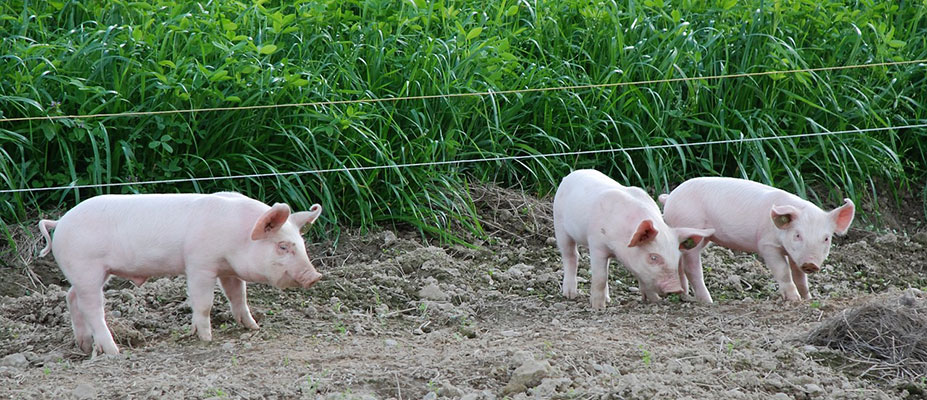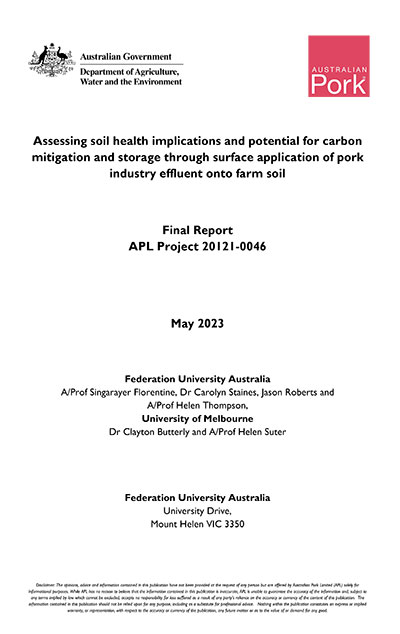
Piggery effluent - waste or valuable resource?
Piggeries can give rise to substantial amounts of waste materials. The producer-owned pork industry body, Australian Pork Limited (APL), has a strong focus on sustainability and was interested in exploring the use of piggery effluent as an agricultural resource. APL asked CeRDI to look at the use of effluent as a fertiliser for farming soils in Australia. They were particularly interested in understanding whether effluent was beneficial for the health of farms soils and the views of Australian pork producers on the use and management of effluent.
Background
A review of published literature found that pig effluent can significantly improve a range of biological, chemical, and physical properties of soil, including increasing soil organic carbon and improved soil carbon balance.
On the other hand, the excess accumulation of pig effluent in farm soils can be of environmental concern if not managed. For example, the build-up of heavy metals or excess levels of nutrients could result in negative health or environmental impacts.
Australian pork producers were invited to share their thoughts and experiences on using effluent. Overall, the producers recognised the potential for effluent as a valuable resource, but identified some issues associated with its use.
The reported benefits included: helping to manage effluent storage; improving crops, pastures, and soil health; and improving economic sustainability by reducing the need for other fertilisers.
On the other hand, the challenges were: the cost of equipment needed to sustainably apply this practice in the long-term; effluent might not be suitable for all crops as some crop species produced large yields that that made harvesting difficult; it can be harder to handle and apply than synthetic fertiliser and more difficult to find a suitable time and type of application; it can be difficult to obtain appropriate permits and to meet EPA regulations. The producers felt there was also a need for improvements in methods of applying the effluent and for better advice on managing the resource.
In collaboration with Precision Agriculture Pty Ltd, soil samples were taken from four properties where pig effluent had been used. It was found that sites treated with effluent had greater nutrient and micronutrient concentrations, without consistent increase in heavy metals of concern. There was a general increase in acidity, and while an increase in salinity was also reported, the soils were rarely classified as saline. There was an apparent increase in soil carbon content in some paddocks and soil structure was not negatively impacted by effluent use, although it was suggested that long term application may lead to structural decline.
Outcomes
In summary, this work suggested that the controlled use of pig effluent fertilisers can have significant benefits to both soil and plant health in agroecosystems. While further investment and research is required to understand the impact of long-term implementation, current indications are positive. In addition, more work is needed on improvements and access to newly emerging storage and application techniques for this method to become more economically sustainable. The findings of this research suggest that if pig effluent fertiliser practices follow all state and territory regulations, are regularly monitored, and appropriately applied to the soil, piggery effluent can become a valuable resource for agricultural soils within Australia.
-
NEWS
Piggery effluent - waste or valuable resource? - 4 July 2023
Piggeries can give rise to substantial amounts of waste materials... Continue reading...
Soil health and the pork industry - 10 June 2022
Australian Pork Limited (APL) is working towards carbon positive and zero waste sustainability goals by 2025.... Continue reading...




.png)

.jpg)
